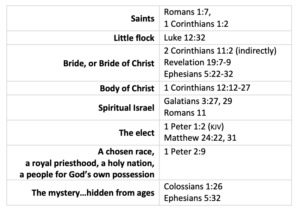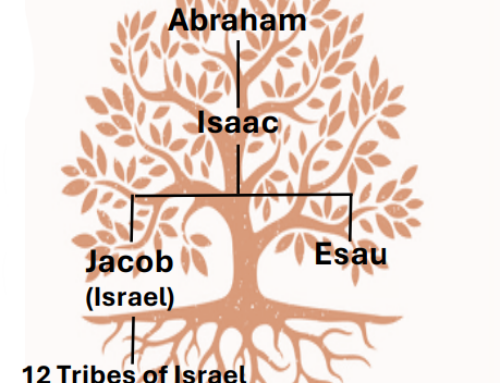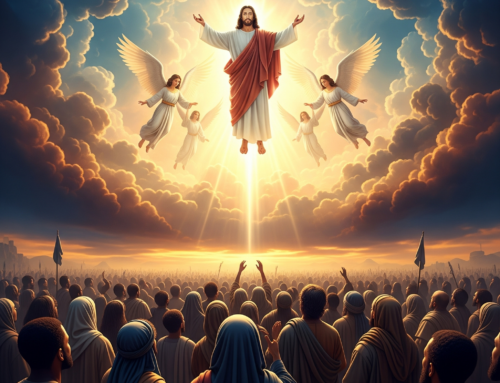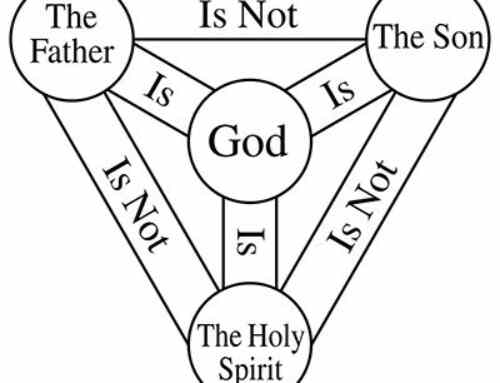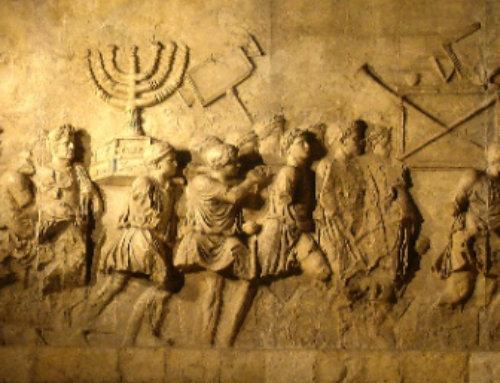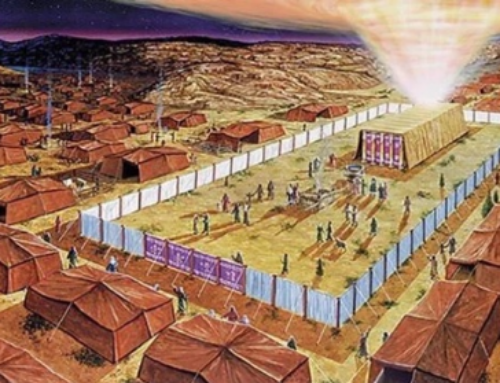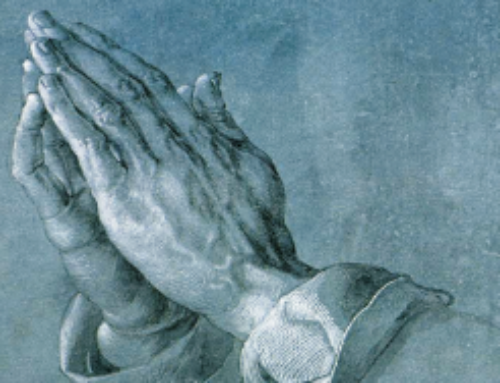The Church of Christ
Goal of this Study: Examine what the Bible teaches about the Church of Christ, or the “Church class.”
WHO is the foundation of Christ’s Church? WHAT are the requirements to be a part of the Church?
WHERE do biblical definitions of the Church class differ from the world’s definition of “church”?
WHEN does one know they are being called to God’s service?
WHY are so few of mankind pursuing membership in the Church class?
Additional references: Studies in the Scriptures Vol. 1, pp.77–88; Reprint 1570 – The Church of the Living God
What is the difference between a “church” and the “Church of Christ” or “Church class” of the Bible?
In its common usage, the word “church” has two general meanings:
- Any kind of institutionalized religion. When used in this context, “church” usually refers to the institution itself, not the religion.
- A building in which religious services, usually Christian services, are held.
The first time the word “church” appears in the Bible is, appropriately enough, found in the words of Jesus:
- Matthew 16:15–18 “He said to them, ‘But who do you say that I am?’ Simon Peter answered, ‘You are the Christ, the son of the living God.’ And Jesus said to him, ‘Blessed are you, Simon Barjona, because flesh and blood did not reveal this to you, but my Father who is in heaven. I also say to you that you are Peter, and upon this rock I will build my church; and the gates of hades will not overpower it.”
Over the centuries, some have misinterpreted Jesus’ words. “Upon this rock” – the “rock” here was the truth that Christ was “the son of the living God.” Jesus himself is the chief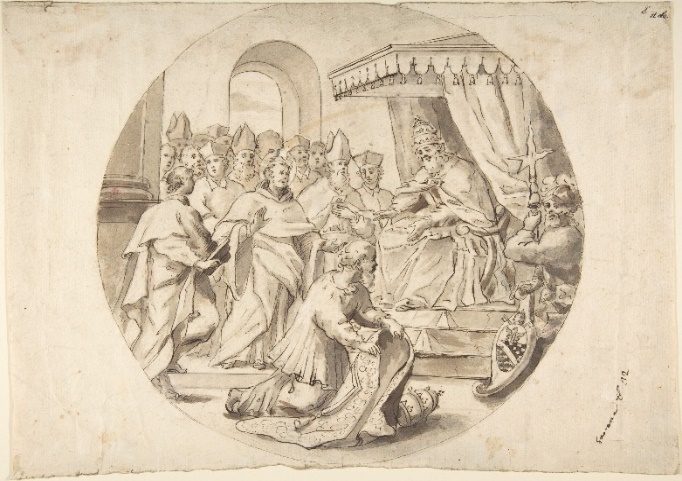 foundation, or cornerstone of his Church.
foundation, or cornerstone of his Church.
-
- Ephesians 2:19–20 “So then you are no longer strangers and aliens, but you are fellow citizens with the saints, and are of God’s household, having been built on the foundation of the apostles and prophets, Christ Jesus himself being the corner stone.”
The Catholic church uses Matthew 16:18 to teach that Jesus made Peter the first pope, and that all other popes have authority because of this “lineage.”
While it is true the Church class includes the apostles, and benefits greatly from the divinely-inspired examples and teachings of the Old Testament prophets as well, it is incorrect to interpret Jesus’ words as a declaration that Peter himself should be considered the main foundation of the Church.
Who is Christ’s Church, or the Church class?
- The word “church” became more frequently used after Jesus’ death, resurrection and ascent to
the spiritual plane. - Every occurrence of “church” or “churches” in the New Testament (except one) comes from Strong’s Exhaustive Concordance #G1577, ekklesia in Greek, meaning “a group of people called out.”
- Bible Students have traditionally referred to their individual group congregations as their “ecclesia.”
- However, there is a deeper meaning behind being members of Christ’s Church, the “Church class,” than participation in a local ecclesia.
- Since Jesus’ death, certain members of mankind have been called by God to prove their faithfulness to Him through sacrifice.
- Romans 12:1–2 “Therefore I urge you, brethren, by the mercies of God, to present your bodies a living and holy sacrifice, acceptable to God, which is your spiritual service of worship. And do not be conformed to this world, but be transformed by the renewing of your mind, so that you may prove what the will of God is, that which is good and acceptable and perfect.”
- These texts again, this time from the New Living translation:
Romans 12:1–2 (nlt) “And so, dear brothers, I plead with you to give your bodies to God. Let them be a living sacrifice, holy—the kind he can accept. When you think of what he has done for you, is this too much to ask? Don’t copy the behavior and customs of this world, but be a new and different person with a fresh newness in all you do and think. Then you will learn from your own experience how His ways will really satisfy you.” - This means changing the direction of our lives to having a direction that will please God,
not one that seeks our own happiness. We need to seek God’s will, not our own. - If judged faithful, members of this group will receive the “divine spirit nature”—a higher reward—than the potential for everlasting human life promised to mankind.
- 2 Peter 1:4 “For by these He has granted to us His precious and magnificent promises, so that by them you may become partakers of the divine nature, having escaped the corruption that is in the world by lust.”
- Part of the heavenly inheritance and responsibility of this group of Jesus’ true followers is the work of reconciling all of mankind back to God. They will help rebuild the broken earth and its inhabitants.
What a privilege!
What are some ways that the Bible refers to this class?
Often referred to as “the Church” or “the Church class,” this group is referred to by many names in the Bible.
What is the first step toward becoming a member of the Church class?
One must be called by God.
- God does the calling. Without God drawing us, there is no path to true discipleship. There could be a path to happiness and to loving Jesus, but not a path to true discipleship. Drawing nearer to God means trying to live a life that would be pleasing to God by being teachable, humble, and honest, as well as having faith in the Bible, studying it to learn His will for their lives.
- John 6:44 “No one can come to me unless the Father who sent me draws him…”
- James 4:8 “Draw nigh to God and He will draw nigh to you.”
- Jesus is the “chief cornerstone,” or foundation, of the Church. Jesus made it clear that the only way to have any type of relationship with God is through faith in Jesus himself.
- John 14:6 “Jesus said to him, ‘I am the way, and the truth, and the life; no one comes to the Father but through me.’”
- Over the centuries, many have claimed belief in Jesus as their Savior. Some have claimed to be his followers. To some extent or another, these may have even allowed that faith to alter their lives and behaviors in some way. These may be thought of as “called” from the rest of the world to God, by a recognition and subsequent faith in Jesus.
- Throughout a significant portion of the Gospel Age, one mechanism used to “call” people to God through Jesus has been the nominal (“in name only”) Christian systems. Many people would not have known about God or Jesus in any capacity were it for the efforts of these systems. This “calling” by God through the Christian systems is sometimes referred to as the “general call.”
- The Church class is composed of an exact number: 144,000 members. Revelation 14:1, 3 If it’s a fixed number, it would be logical that as we get close to the completion of the Church, the general call would cease.
- After the general call ceased, individuals began to be called to God based on their recognition of the errors propagated by those systems, and the ability of these individuals to see the truth of God’s character and plan through the Scriptures. This concept is referred to in:
- Revelation 18:4–5 “I heard another voice from heaven, saying, ‘Come out of her, my people, so that you will not participate in her sins and receive of her plagues; for her sins have piled up as high as heaven, and God has remembered her iniquities.’”
 The Parable of the Dragnet also represents this concept:
The Parable of the Dragnet also represents this concept:- Matthew 13:47–50 “Again, the kingdom of heaven is like a dragnet cast into the sea, and gathering fish of every kind; and when it was filled, they drew it up on the beach; and they sat down and gathered the good fish into containers, but the bad they threw away. So it will be at the end of the age; the angels will come forth and take out the wicked from among the righteous, and will throw them into the furnace of fire; in that place there will be weeping and gnashing of teeth.”
- The net represents the call of God, or “general call” that went forth from the nominal Christian systems. The gospel message pulls in “fish” of every kind – both true and false Christians.
The net being drawn into shore conveys the thought that its job is over. - Good fish are separated from bad fish. This represents the sorting of people who responded to
God’s call through these church systems. - The “good fish” are those who followed on to the second step of becoming members
of the true Church class. - The “bad fish” are those who may have joined these systems and professed to be
answering God’s calling, but lacked a genuine love for God. (See Vol. 3, pp.213–216)
- The net represents the call of God, or “general call” that went forth from the nominal Christian systems. The gospel message pulls in “fish” of every kind – both true and false Christians.
How are people called by God today?
- They generally recognize there are no longer any real, satisfying answers in today’s world. They generally feel there is something not quite right about how the religious systems represent God or His plans for mankind.
- They recognize, at least on some level, that Jesus is the means to salvation, even if they don’t understand exactly how that works.
- They may attend church services but have the desire to learn more. They are drawn to God.
- Some may have even left these systems, and may even be familiar with the truth of God’s character,
Jesus’ role in God’s plan and other important truths.
Is being called to God all there is, or is there more?
There most emphatically IS more, as declared by Jesus himself. To be drawn by God and to come to Christ
is one thing. To comprehend the depth of commitment to being a Christian, a true disciple of Jesus, is another.
- Matthew 22:14 “For many are called, but few are chosen.”
What is the second step toward becoming a member of the Church class?
One must sacrifice their self-will, heart and mind to serving God, to become a part of the Church class.
- Luke 9:23 (kjv) “If any man will come after me, let him deny himself, and take up his cross daily and
follow me.”
- “deny himself”– to give up your earthly ambitions, desires and hopes and accept the Lord’s will.
- “take up his cross”– the trials, difficulties, disappointments, the crossing of the human will made necessary by the doing of God’s will under present unfavorable conditions.
- “follow me”– to walk as he walked and have one goal – to be pleasing to our heavenly Father.
- 1 Peter 2:21 “For you have been called for this purpose, since Christ also suffered for you,
leaving you an example for you to follow in his steps.”
- 1 Peter 2:21 “For you have been called for this purpose, since Christ also suffered for you,
It is at this point, we begin to absorb the seriousness of following Jesus as his disciple.
- Luke 14:25–27 “Now large crowds were going along with him; and he turned and said to them, ‘If anyone comes to me, and does not hate his own father and mother and wife and children and brothers and sisters, yes, and even his own life, he cannot be my disciple. Whoever does not carry his own cross and come after me cannot be my disciple.’”
- This sounds harsh, but the Greek word for “hate” here means to “love less.” Jesus is teaching us there is an order of devotion. Being called to follow in his footsteps and doing his Father’s will comes as our first priority every day of our lives. This is a serious commitment. Diminishing our earthly connections and carrying our cross are necessary discipleship qualifications.
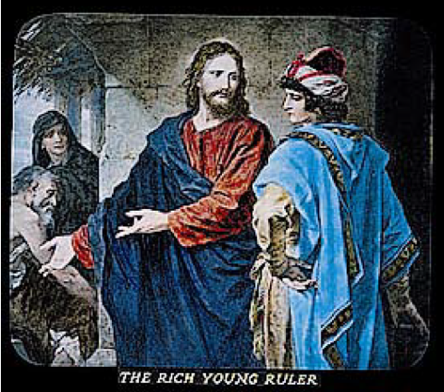 Matthew 19:16–24 and Luke 18:18–25: A rich young ruler approaches Jesus. The ruler tells Jesus that he has kept God’s Law (the Mosaic Law given to the Jewish people) all of his life.
Matthew 19:16–24 and Luke 18:18–25: A rich young ruler approaches Jesus. The ruler tells Jesus that he has kept God’s Law (the Mosaic Law given to the Jewish people) all of his life.
- Matthew 19:20 “The young man said to him, All these things
I have kept; what am I still lacking?”
This man had both worldly success and felt he was keeping God’s laws, yet still felt something further was missing, leading him to approach Jesus. Jesus’ response to the young man reflects what one must do to seek entry into the Church class.
- Matthew 19:21 “Jesus said to him, If you wish to be complete, go and sell your possessions and give to the poor, and you will have treasure in heaven; and come, follow me.”
Jesus was indicating that in order to truly follow him, one must sacrifice all that one holds precious and dedicate one’s life to serving God above all else.
- Jesus repeated this thought to the Pharisees when they asked him which was the most important of God’s commandments.
- Matthew 22:36–40 “Teacher, which is the great commandment in the Law? And he said to him, ‘You shall love the Lord your God with all your heart, and with all your soul, and with all your mind. This is the great and foremost commandment. The second is like it, you shall love your neighbor as yourself. On these two commandments depend the whole Law and the Prophets.’”
- This process of devotion is often referred to as “consecration.” This involves dedicating ourselves to doing God’s will instead of our own. We strive to transform our lives, following the example of Jesus in making every decision of life pleasing to God.
- Answering the call is not an emotional decision. Because of the seriousness of this commitment, Jesus advises his followers to first “calculate the cost” (“count the cost” in KJV; deciding if this is for you) of a lifelong devotion. Jesus explains this using two analogies in Luke 14:28–33.
- Someone wouldn’t build a tower without making sure they had enough money and labor to finish.
- No king would go to war without making sure his soldiers have a chance of winning.
Jesus is teaching us to think this through, to invest thought and reason into our decision to follow him rather than base it on mere reaction and emotion.
- Do my choices and lifestyle coincide with sound discipleship principles? Or do my choices and lifestyle fall far short and support earthly emotions and desires instead? Psalm 40:8 “I delight to do Your will, O my God.” After serious consideration, we may decide it is better not to answer the call. We don’t want to make a promise we can’t keep. The rich young ruler was not ready to live a higher, less materialistic life. He lost the opportunity to become a disciple and receive the heavenly reward, but he will still have the opportunity to serve on earth after he is raised in the Kingdom.
- Baptism is an outward proclamation that shows to others we have made this commitment.
- Once one decides to offer their lives in consecration, that consecration must be accepted by God.
- Matthew 22:14 “For many are called, but few are chosen.”
If many are called, but few are chosen, how does one know if they have been chosen?
- One can expect to begin to see changes in one’s heart and thoughts, bringing them more in line with conditions pleasing to God.
- James 4:6 “But He gives a greater grace. Therefore it says, God is opposed to the proud, but gives grace to the humble.”
- One should not expect to see automatic, immediate changes. The work of developing this heart and mind is a lifetime work. We work on developing the “fruit of the spirit” described in Galatians 5:22–23.
- Response to the call and the required sacrifice means we are reconciled with God. Being reconciled to God means you are living in a different category than the rest of the world. The ransom has been paid for you, and now God can actually work with you as one of His children. This is a higher life and a privilege.
- 2 Corinthians 5:17–18 “Therefore if anyone is in Christ, he is a new creature; the old things passed away; behold, new things have come. Now all these things are from God, who reconciled us to Himself through Christ and gave us the ministry of reconciliation.”
- If God accepts our consecration, we are “spirit begotten,” beginning a new spiritual life guided by the Holy Spirit, God’s power and influence. We are assured God will overrule every experience of our faithful, consecrated life to work out for our best spiritual interest. Romans 8:28
- Paul compares this work to a race which must be run with patience and endurance.
- Hebrews 12:1 “Therefore, since we have so great a cloud of witnesses surrounding us, let us also lay aside every encumbrance and the sin which so easily entangles us, and let us run with endurance the race that is set before us.”
What is the third step toward becoming part of the Church class?
One must be faithful to their commitments to God, until death.
- True Christianity is all about change. It is about coming to God through Christ as sinful human beings. While Christianity absolutely is, “Come as you are,” it is not “Stay as you are.”
- God doesn’t ignore or make excuses for sin. We are to conform to God’s rules, not think of our Christianity as conforming to how we live our life.
- God places high importance on faith. The Apostle Paul describes what faith is.
- Hebrews 11:1 “Now faith is the assurance of things hoped for, the conviction of things not seen.”
- Paul also tells us faith is a key part of our development as potential members of the Church class.
- 2 Corinthians 5:7 “for we walk by faith, not by sight.”
- The criteria to become part of the Church class is plainly stated.
- Revelation 2:10 “…Be faithful until death, and I will give you the crown of life.”
- It’s not enough to be called; it’s not enough to be chosen. We must be “faithful until death.” This implies a daily battle with the world and its pleasures, remaining faithful to God’s righteous principles.
- Revelation 17:14 “…and those who are with Him are the called and chosen and faithful.”
Throughout our consecrated lives, we are to develop a heart and mind that recognizes and
loves God and His ways so completely that we devote our entire being to His service,
even though we can’t physically see or touch Him. That is the essence of faith.
How many people will be allowed into the Church class?
- There is scriptural evidence that the number of people chosen for membership in the Church class is 144,000. (While the book of Revelation contains many symbols, numbers are generally literal.)
- Revelation 14:3 “And they sang a new song before the throne and before the four living creatures and the elders; and no one could learn the song except the one hundred and forty-four thousand who had been purchased from the earth.”
- No one prior to Jesus was offered a heavenly reward. No one was able to enter heaven until he died, was resurrected and ascended.
- John 3:13 “No one has ascended into heaven, but he who descended from heaven: the Son of Man.”
- The call to the Church class has been going on since Jesus’ death, approximately 2,000 years ago. Doesn’t 144,000 seem like a small number of people for such a long period of time?
- Since the total number of the Church class is 144,000, this means that over 2,000 years, only about 72 individuals per year were found worthy. This small number shows just how high God’s standard is for those He calls and chooses.
- There were also periods of history, such as the Dark Ages (a period of several hundred years) when it may have been very difficult for any to respond to God’s calling due to a general lack of biblical truth or knowledge of God.
- Romans 8:29 “For those whom He foreknew, He also predestined to become conformed
to the image of His son, so that He would be the firstborn among many brethren.”
- Jesus himself described this class as a “little flock.”
- Luke 12:32 (KJV) “Fear not, little flock; for it is your Father’s good pleasure to give you the Kingdom.”

 Being part of the Church class is not the only path to salvation. In addition to the Great Company (also known as the Great Multitude), the remainder of mankind will still enjoy the wonderful restitution to perfect human life during God’s Kingdom and all the ages afterward.
Being part of the Church class is not the only path to salvation. In addition to the Great Company (also known as the Great Multitude), the remainder of mankind will still enjoy the wonderful restitution to perfect human life during God’s Kingdom and all the ages afterward.
- Genesis 22:17–18 “Indeed I will greatly bless you, and I will greatly multiply your seed as the stars of the heavens and as
the sand which is on the seashore; and your seed shall possess the gate of their enemies. In your seed all the nations of the earth shall be blessed, because you have obeyed My voice.” - Revelation 21:4 “And He will wipe away every tear from their eyes; and there will no longer be any death; there will no longer be any mourning, or crying, or pain; the first things have passed away.”
- Genesis 22:17–18 “Indeed I will greatly bless you, and I will greatly multiply your seed as the stars of the heavens and as
“The Little Flock will serve the Lord with such delight they will scarcely know how to cease their efforts.”
– Reprint 5413
“For I consider that the sufferings of this present time are not worthy
to be compared with the glory that is to be revealed to us.” Romans 8:18




